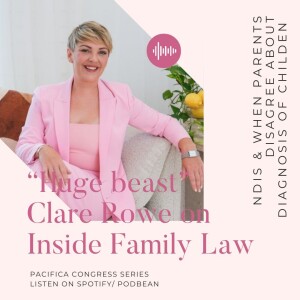
- Podcast Features
-
Monetization
-
Ads Marketplace
Join Ads Marketplace to earn through podcast sponsorships.
-
PodAds
Manage your ads with dynamic ad insertion capability.
-
Apple Podcasts Subscriptions Integration
Monetize with Apple Podcasts Subscriptions via Podbean.
-
Live Streaming
Earn rewards and recurring income from Fan Club membership.
-
Ads Marketplace
- Podbean App
-
Help and Support
-
Help Center
Get the answers and support you need.
-
Podbean Academy
Resources and guides to launch, grow, and monetize podcast.
-
Podbean Blog
Stay updated with the latest podcasting tips and trends.
-
What’s New
Check out our newest and recently released features!
-
Podcasting Smarter
Podcast interviews, best practices, and helpful tips.
-
Help Center
-
Popular Topics
-
How to Start a Podcast
The step-by-step guide to start your own podcast.
-
How to Start a Live Podcast
Create the best live podcast and engage your audience.
-
How to Monetize a Podcast
Tips on making the decision to monetize your podcast.
-
How to Promote Your Podcast
The best ways to get more eyes and ears on your podcast.
-
Podcast Advertising 101
Everything you need to know about podcast advertising.
-
Mobile Podcast Recording Guide
The ultimate guide to recording a podcast on your phone.
-
How to Use Group Recording
Steps to set up and use group recording in the Podbean app.
-
How to Start a Podcast
-
Podcasting
- Podcast Features
-
Monetization
-
Ads Marketplace
Join Ads Marketplace to earn through podcast sponsorships.
-
PodAds
Manage your ads with dynamic ad insertion capability.
-
Apple Podcasts Subscriptions Integration
Monetize with Apple Podcasts Subscriptions via Podbean.
-
Live Streaming
Earn rewards and recurring income from Fan Club membership.
-
Ads Marketplace
- Podbean App
- Advertisers
- Enterprise
- Pricing
-
Resources
-
Help and Support
-
Help Center
Get the answers and support you need.
-
Podbean Academy
Resources and guides to launch, grow, and monetize podcast.
-
Podbean Blog
Stay updated with the latest podcasting tips and trends.
-
What’s New
Check out our newest and recently released features!
-
Podcasting Smarter
Podcast interviews, best practices, and helpful tips.
-
Help Center
-
Popular Topics
-
How to Start a Podcast
The step-by-step guide to start your own podcast.
-
How to Start a Live Podcast
Create the best live podcast and engage your audience.
-
How to Monetize a Podcast
Tips on making the decision to monetize your podcast.
-
How to Promote Your Podcast
The best ways to get more eyes and ears on your podcast.
-
Podcast Advertising 101
Everything you need to know about podcast advertising.
-
Mobile Podcast Recording Guide
The ultimate guide to recording a podcast on your phone.
-
How to Use Group Recording
Steps to set up and use group recording in the Podbean app.
-
How to Start a Podcast
-
Help and Support
- Discover

Inside Family Law with Zoë Durand
Education

“huge beast” – Clare Rowe on NDIS, funding potentially driving diagnosis, parents disputes about diagnosis of children at the Pacifica Congress conference
“huge beast” – Clare Rowe on NDIS & parents disputes about diagnosis of children at the Pacifica Congress conference
Listen in https://www.podbean.com/eas/pb-ujz8a-14d6128
Clare Rowe https://www.roweandassociates.com.au/ Clare has presented at Pacifica Congress events several times including at their Plus One event in Sydney 2023. Clare, through the Family Report Writer’s Network is sponsoring the Inside Family Law Podcast Champagne Celebration.
At the Pacifica Congress Conference live in Hobart 2023 www.pacificacongress.org
The Inside Family Law Podcast is hosted by Zoe Durand at Mediation Answers www.mediationanswers.com.au in partnership with Lawyer Magic and ArtWork.
If you would like to attend the champagne celebration on 1 November 2023 for the Inside Family Law and network with our remarkable guests that we have hosted over the years secure your spot at: https://www.eventbrite.com.au/e/736405357247?aff=oddtdtcreator
- “10% of 5 to 7 year old boys are on the NDIS”
- No actual test as such for autism or ADHD. It is the professional opinion for such a diagnosis, but 2 different professionals could have different views.
- Funding is tied to diagnosis.
- What are the implications of a diagnosis of say autism?
- Pressure on psychologists to diagnose given otherwise parents lose their funding, which could negatively impact family.
- Autism 1, 2, 3 (only 2 and 3 receive funding). Clare has not yet seen a diagnosis of autism 1, because there is no funding for this. Dynamic between what we diagnose and funding.
- Dynamic where parents polarise. I.e one prefers nachos and video games and the other prefers vegan lifestyle. They become more extreme once separated. Then party A says the child isn’t eating healthy food in party B’s home and Party B says the child is not being fed properly on an overly restrictive diet. When together they balance each other. Once apart “they become more them”.
- This is understandable to an extent as when people separate they go out to find themselves.
- Clare’s involvement in matters where one party asserts a diagnosis and the other disputes it. Different outcomes in those matters. In one case mother had Munchhausen’s by proxy and was unwell and in others the child should have been diagnosed and the other parent disputing it was asked to be involved and learn about the child’s needs etc.
- Sometimes the reason a parent disputes a diagnosis is because they were not involved in that diagnosis in the first place and once they are involved they can engage with recommendations.
- Is there sometimes a tendency to pathologize human variance?
More Episodes
 2025-08-05
2025-08-05
 26
26
 2025-01-27
2025-01-27
 61
61
Create your
podcast in
minutes
- Full-featured podcast site
- Unlimited storage and bandwidth
- Comprehensive podcast stats
- Distribute to Apple Podcasts, Spotify, and more
- Make money with your podcast
It is Free
- Privacy Policy
- Cookie Policy
- Terms of Use
- Consent Preferences
- Copyright © 2015-2026 Podbean.com



